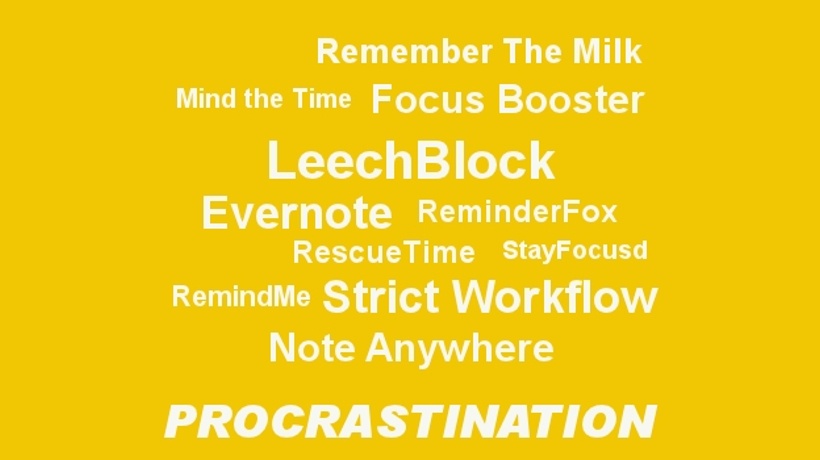10 Awesome Online Research Tools
Online learning has opened up the opportunity for many people to educate themselves, learn new skills, and earn college degrees even if they are not able to attend classes in a traditional sense of the word. Some just don’t have the time/money to move or commute to another city, or they work full time and have families, which means eLearning is their only option. As great as online learning is, it has several drawbacks. Obviously, it requires you to be online most of the time, which is fine, if you are doing research, writing, taking online tests, or attending your virtual classes.
But being online also makes you more prone to procrastination and distractions. There is also the issue of keeping all those gigabytes of research data organized and having hardware that’s powerful enough to enable real-time communication. These are just some of the issues eLearners face. Fortunately, there is something you can do to make your eLearning experience a lot more efficient and stimulating, especially the research part. We have prepared a list of 10 online research tools every online learner should master.
- Todoist.
Research is a time-intensive activity, which means you will need a tool to organize both your professional and personal life. We advise you to give Todoist a shot. Todoist enables you to manage all of your projects and access them from any platform you own, including your desktop computer, laptop, or portable devices. You can share your tasks and collaborate with other people. Another clever feature is “karma” points, which are given to users if they are successful in assigning tasks to projects. - EndNote.
EndNote is a multi-functional research tool which helps you search for information in online databases and full texts based on abstracts, as well as manage and auto-complete all of your references. Like Todoist, EndNote also enables you to share your research data with your collaborators. If you prefer to work alone, you can do that too by saving, managing and tagging your research results for better access. Other features include bibliography maker that is capable of creating citations in over 6,000 styles, as well as automatic journal suggestion. - EduGeeksClub.
Every once in a while, you are going to come across an insurmountable obstacle while doing your research. Instead of giving up, you can turn to EduGeeksClub for professional research help. Get in touch with professional writers and researchers and learn all the ins and outs of thorough research. Also, you can commission a paper from them which you can then use as a resource for your essay, paper, or dissertation. They also provide editing and proofreading services. - Zotero.
Another essential tool all online learners should make use of is Zotero. Zotero integrates itself seamlessly into your browser and uses its clever ability to automatically recognize content for you. After that, all it takes for you to save it to your personal, fully searchable library, which is another feature in Zotero, in a single click. It supports audio and video files, PDF documents, as well as most image formats. - RefWorks.
RefWorks is a browser-based tool which has the ability to help learners find the right research data, organize it, store it, and easily share it with their colleagues and collaborators. All of that research information and written work needs to be supported by proper citations, and RefWorks generates those for you automatically, as well as bibliographies in every style. If you are not sure how to make use of its full potential, there are plenty of tutorials on how to do it, right there on the website. - DataElixir.
One of the best ways to keep up to date with all the latest news, developments and data in science is to find a website which curates all of those on a weekly basis. We recommend Data Elixir. Whether you’re an eLearner, a scientist, or a researcher, you benefit a lot for its weekly collection of all the best data resources and news, and you don’t even have to put in any effort whatsoever. You just have to subscribe to their free weekly newsletter and that’s it. - Paperpile.
Paperfile is a reference management software which, similar to Zotero, works as an extension for Google Chrome browser, making it accessible for Windows, Mac OS, and Linux users. We recommend that you use it to find and import data from platforms like Google Scholar, PubMed, or arXiv. You can easily export all the PDF documents and data to Google Drive, which means you’ll have the opportunity for collaborative editing of your papers. The collaboration doesn’t end there, because you can send data back and forth between Paperpile and Zotero, for example, as well as Mendeley. - DeepDyve.
High-quality research papers and scholarly journals can often set you back a pretty penny, so it’s important for you to know exactly what you’re getting for the money you’ve paid. The only trouble is, you are often allowed to look at an abstract for free, and decide if you want to buy the full-text paper, and then realize it’s of no use to you. DeepDyve enables you to access the full-text articles for a limited period of time, enough for you to figure out if the paper is exactly what you are looking for.
- ContentMine.
ContentMine is an online resource which aims to bring over 100,000,000 scientific facts close to the people, by converting the collective knowledge of the world that is present in scientific literature into content which can be read on your computes. All of its tools, features, and services are free and open access. They often cite Wikipedia and similar open projects as a source of their inspiration. - Plagiarism Checker.
In order to rid your work of duplicate content, run it through Plagiarism Checker, which will scan and determine if there is any duplicate content present. If there is, you either need to provide better citations, or rewrite your work so that it’s more unique.
These 10 awesome online research tools will change the way you do research for good, and for the better, and your eLearning process will be made much more streamlined and efficient. In the end, that’s the thing that matters the most.








